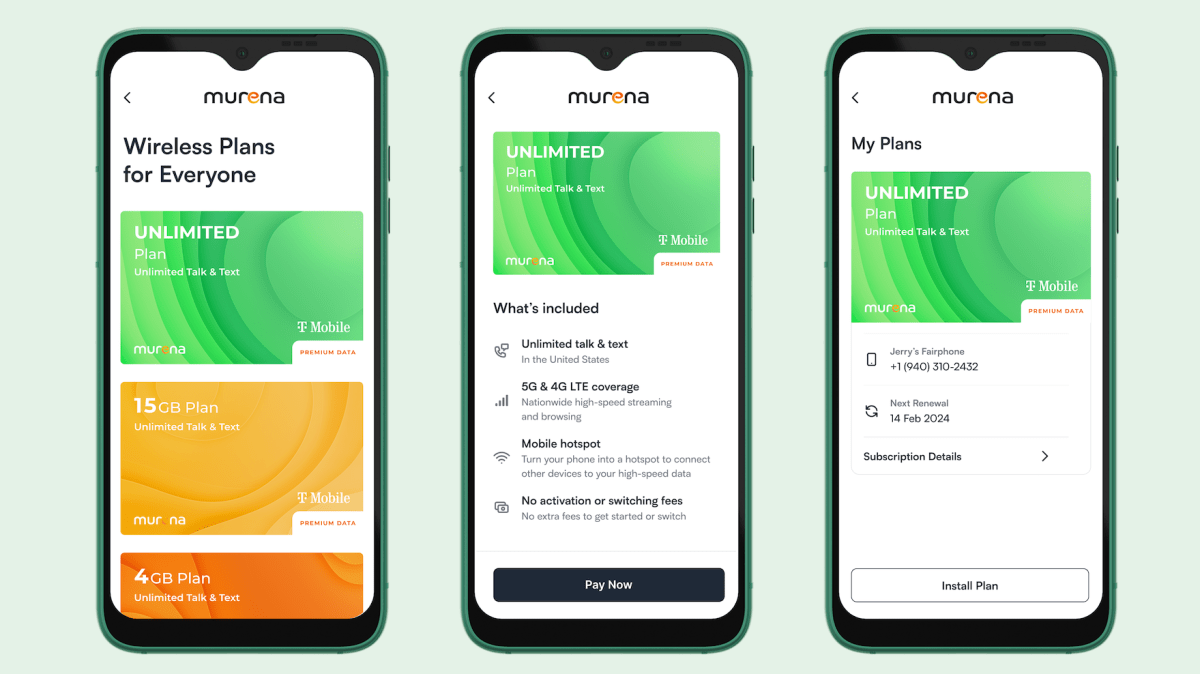Introducing Murena Mobile: MVNO Launch Signals Privacy-Powered Expansion
Murena, an innovative French startup, is making headlines for its “de-Googled” smartphones, complete with a unique version of Android. Now, the company is adding yet another offering to its roster of privacy-focused products: its own branded mobile network. As Murena joins the fast-growing world of mobile virtual network operators (MVNOs), it aims to shake up the industry with its commitment to user privacy and seamless integration.
The newly launched Murena Mobile is available exclusively to United States customers and is built atop T-Mobile’s network. Catering to a range of needs, the available plans start at 4GB of data for $35 per month, and go all the way up to unlimited data for a monthly cost of $65. Plus, customers can enjoy unlimited calls and texts across all plans.
As highlighted by TechCrunch, the MVNO sector is experiencing rapid growth, with a multitude of companies leveraging established telecommunications infrastructure to launch niche mobile network brands. What sets these MVNOs apart is their unique branding and targeted approach to customer segments.
Fueling much of this expansion is new technology that simplifies the process of becoming an MVNO. This includes mobile virtual network enabler (MVNE) software, which takes care of crucial infrastructure elements such as SIM card provisioning, billing, user management, customer support, and analytics. Additionally, the widespread adoption of eSIM technology has made the all-digital distribution strategy more feasible and cost-effective, as showcased by Sam Altman-backed startup Humane and its “Ai Pin” technology.
Murena is capitalizing on these advancements with its entry into the $84 billion MVNO market.
Privacy at the Core
Founded in 2018, Murena has developed its own operating system, called /e/OS. Built on the Android-based fork LineageOS, this system can be self-installed on supported devices or purchased pre-installed on select smartphones, including refurbished models like the Google Pixel 5 and Fairphone.
What sets Murena apart is its strong focus on privacy. The company has replaced all Google apps with open source alternatives and boasts software that prioritizes anti-tracking and privacy-centric features.
“This approach not only provides financial stability, but allows for a better long-term planning for this service and other future plans,” stated Murena’s chief operating officer (COO), Alexis Noetinger, in an interview with TechCrunch. “It is also a great way for people believing in our mission to contribute to our project, instead of going directly to a carrier that they don’t care about.”
In addition to selling smartphones, Murena also monetizes through add-on services such as cloud plans. These plans offer tools similar to those found in Google Workspace, including email and productivity tools that sync seamlessly across devices. With the addition of Murena Mobile, the company gains another source of recurring revenue to support its mission.
Switching MVNE Providers
Murena is not the only minimalist smartphone company offering mobile plans. U.S. company Light has been offering plans for several years, and recently switched to a new MVNE provider called Gigs. Described as the “Stripe for phone plans,” Gigs offers a simple, plug-and-play platform that gives emerging MVNOs access to everything they need through a single API. This includes Murena Mobile, which will now be powered by Gigs.
“We can manage and help our subscribers if they need anything, all from a single dashboard — which makes our life easy,” explained Noetinger. “And for our customers, they can access their plan easily and manage their subscription without any effort.”
Despite being a European company, Murena has chosen to launch its new service exclusively in the U.S. This decision is indicative of the company’s confidence in the American market, especially among its target demographic of privacy-conscious individuals.
“Signing up for a mobile plan in the U.S. can be complex, even today. Most of the time, you need to go through a credit check, share your social security number, and validate an ID,” Noetinger explained. “This results in a lot of personal data being collected unnecessarily, increasing the risk of being retargeted or of having your data fall into the wrong hands.”
While Murena plans to expand to Europe in 2024, for now, the focus is on eSIM technology. This does pose a challenge, as not all phones are eSIM-compatible, including some of the devices available for purchase on Murena’s online store. Additionally, customers cannot sign up for Murena Mobile plans at the same time as purchasing an eSIM-supported device; they must complete the transaction separately. However, Noetinger assures this will be addressed in the future.
“We know this is not ideal, and we plan to improve this in 2024,” he stated.
This launch marks just the beginning of Murena’s vision for a comprehensive privacy-centric package, with the ultimate goal of making the Murena brand a staple for customers who prioritize their privacy. This could include bundling products like phones, cloud plans, and mobile plans into one convenient monthly subscription.
“The main purpose of launching Murena as an MVNO is to offer a seamless and integrated solution for privacy-conscious individuals,” Noetinger said. “In the future, we could think about a complete package with phone, cloud plan, and a mobile plan all combined in a monthly subscription.”








